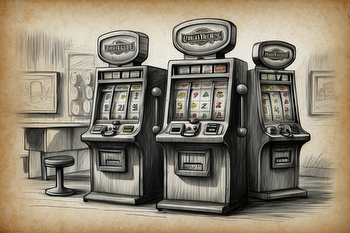Unveiling RTP: The Key to Understanding Your Chances in Gambling

In the ever-changing landscape of online gambling, an essential element that shapes player experiences and contentment is the concept of Return To Player (RTP). RTP holds considerable sway in ascertaining the enduring profitability and equity of online casino games. In this blog post, we will delve deeply into the intricacies of RTP, shedding light on its definition, the methods for its calculation, the concept of volatility, regulatory requisites, and why it has emerged as a pivotal factor influencing players' game selections. Recognizing the significance of RTP holds relevance for both industry experts aiming to strategically enhance their game offerings and for players seeking to make informed choices grounded in probabilities and payout structures.
Return To Player
Return To Player, abbreviated as RTP, is a crucial metric in the realm of online gambling. It represents the percentage of all wagers placed by players that a particular game is expected to return to them over an extended period. To illustrate, consider a game boasting an RTP of 95%. This signifies that, on average, the game will pay back $95 for every $100 wagered by players. You may find top paying online casino from here.
It's worth noting that RTP can vary even within the same game category. Taking slots, for instance, as an example, games equipped with a greater number of paylines or bonus features may exhibit distinct RTP percentages when compared to classic slot games. Games featuring progressive jackpots or enticing bonus rounds may have slightly lower RTPs, yet they often compensate for this by offering enhanced entertainment value.
However, it's essential to grasp that RTP remains a theoretical value derived from statistical calculations. It does not assure specific outcomes for individual players. Instead, it serves as a valuable indicator of how profitable and equitable an online casino game is likely to be over the long haul.
This understanding of RTP is invaluable for both casino enthusiasts and industry professionals. Players can make more informed choices by considering RTP figures when selecting games, allowing them to align their preferences with potential returns. Meanwhile, for those within the gaming industry, comprehending the significance of RTP aids in strategic game selection and optimization, ensuring a satisfying and fair gaming experience for all.
Calculation of RTP
The computation of RTP relies on an extensive statistical examination of gameplay data, a process carried out by casino game developers using sophisticated algorithms and random number generators (RNGs) to ensure impartial and equitable outcomes. This intricate calculation involves the evaluation of the aggregate bets made on the game and the total winnings dispersed to players. This collected data is then utilized to establish the precise RTP percentage for the game in question. It's important to note that RTP values may vary among different software providers, as each crafts unique games featuring diverse attributes and distinct payout structures.
Ensuring RTP accuracy is paramount and is typically verified by recognized testing agencies such as eCOGRA and iTechLabs. Consequently, it is advisable to exclusively engage in gaming activities at casinos holding their Seal of Approval, assuring players of fair play. It's crucial to understand that RTP is a fixed characteristic of a game and cannot be altered or influenced by players. However, comprehending how it operates can significantly enhance your gaming experience and decision-making.
Volatility
Game volatility pertains to the degree of dispersion in both the frequency and magnitude of payouts compared to the Theoretical Return to Player. A highly volatile game tends to yield fewer payouts, and these payouts typically align closely with the Theoretical RTP, resulting in a broader range for the actual RTP to fluctuate within. Conversely, a low volatility game offers more frequent payouts that are closer in value to the Theoretical RTP, resulting in a narrower acceptable range for the actual RTP. Consequently, when dealing with limited play sessions, considering volatility becomes crucial in terms of the tolerance between Theoretical RTP and Actual RTP.
To Sum Up
Return to Player stands as an important factor that can greatly influence your online casino gaming journey. Gaining a grasp of RTP percentages, the techniques used for calculation, and the implementation of successful strategies can substantially enhance your prospects of success.



































